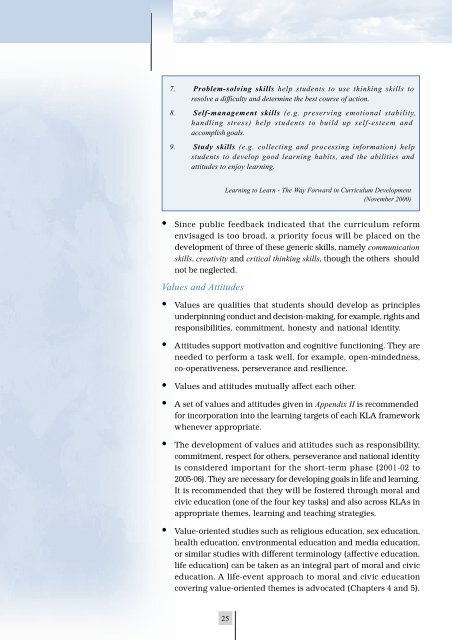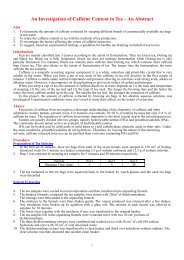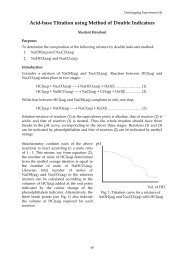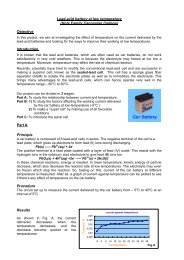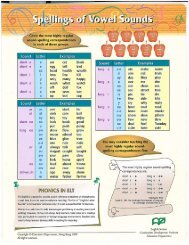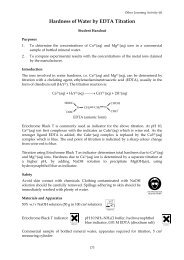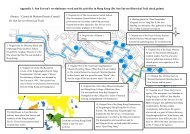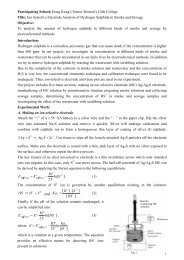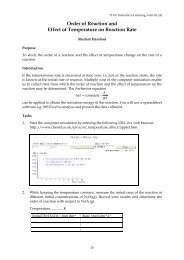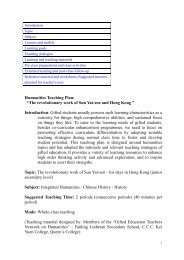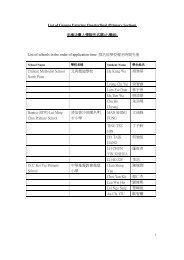Chapter 3_19-29 - Www2.hkedcity.net
Chapter 3_19-29 - Www2.hkedcity.net
Chapter 3_19-29 - Www2.hkedcity.net
Create successful ePaper yourself
Turn your PDF publications into a flip-book with our unique Google optimized e-Paper software.
7. Problem-solving skills help students to use thinking skills toresolve a difficulty and determine the best course of action.8. Self-management skills (e.g. preserving emotional stability,handling stress) help students to build up self-esteem andaccomplish goals.9. Study skills (e.g. collecting and processing information) helpstudents to develop good learning habits, and the abilities andattitudes to enjoy learning.Learning to Learn - The Way Forward in Curriculum Development(November 2000)• Since public feedback indicated that the curriculum reformenvisaged is too broad, a priority focus will be placed on thedevelopment of three of these generic skills, namely communicationskills, creativity and critical thinking skills, though the others shouldnot be neglected.Values and Attitudes• Values are qualities that students should develop as principlesunderpinning conduct and decision-making, for example, rights andresponsibilities, commitment, honesty and national identity.• Attitudes support motivation and cognitive functioning. They areneeded to perform a task well, for example, open-mindedness,co-operativeness, perseverance and resilience.• Values and attitudes mutually affect each other.• A set of values and attitudes given in Appendix II is recommendedfor incorporation into the learning targets of each KLA frameworkwhenever appropriate.• The development of values and attitudes such as responsibility,commitment, respect for others, perseverance and national identityis considered important for the short-term phase (2001-02 to2005-06). They are necessary for developing goals in life and learning.It is recommended that they will be fostered through moral andcivic education (one of the four key tasks) and also across KLAs inappropriate themes, learning and teaching strategies.• Value-oriented studies such as religious education, sex education,health education, environmental education and media education,or similar studies with different terminology (affective education,life education) can be taken as an integral part of moral and civiceducation. A life-event approach to moral and civic educationcovering value-oriented themes is advocated (<strong>Chapter</strong>s 4 and 5).25


